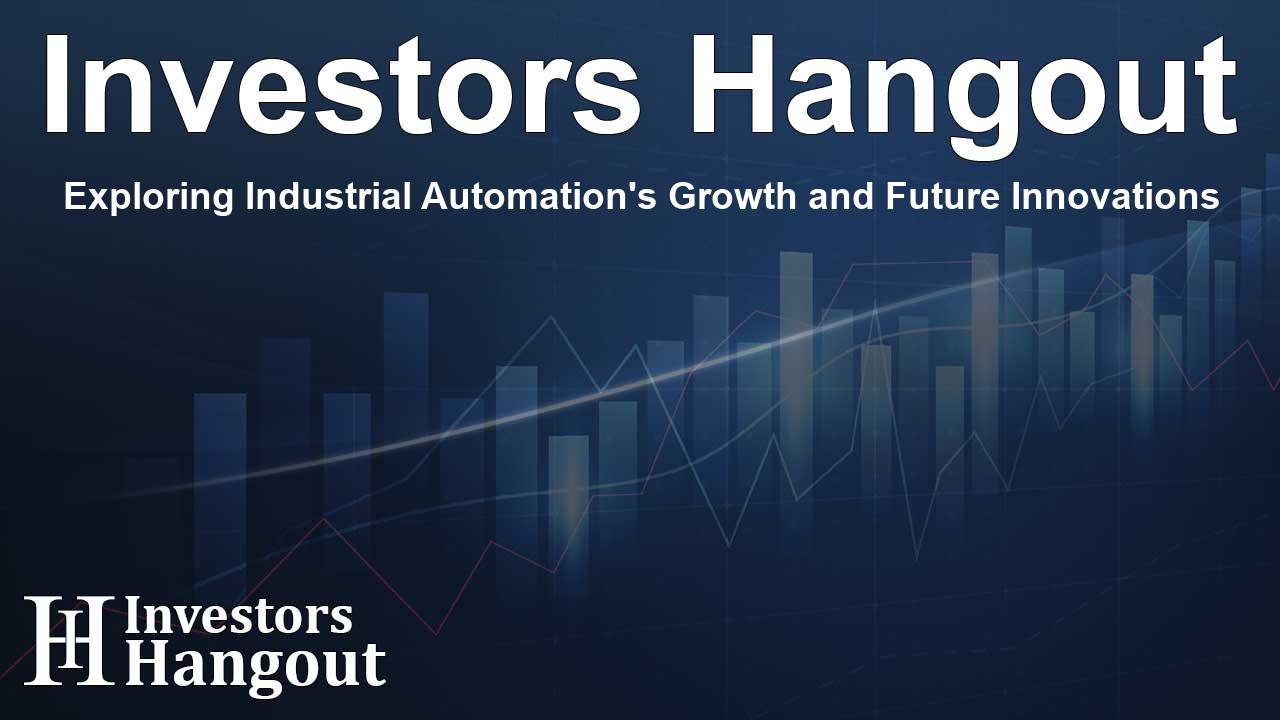Exploring Industrial Automation's Growth and Future Innovations

Industrial Automation Market Overview
The industrial automation market is undergoing significant transformation, with an estimated growth of USD 107.1 billion from 2024 to 2028. This remarkable expansion is powered by changing market dynamics and the integration of artificial intelligence, which is reshaping how industries operate. Key players like ABB Ltd., Siemens AG, and Emerson Electric Co., are leading the charge, contributing to an expected compound annual growth rate (CAGR) of approximately 9.45% during this forecast period.
Market Drivers and Dynamics
The Impact of Open Platform Architecture
One of the crucial drivers shaping this market is the increasing demand for open platform architecture in automation software. This innovative approach empowers Original Equipment Manufacturers (OEMs) to customize and enhance the functionality of machines, thereby improving operational capabilities and connectivity. By adopting open-source technologies like Siemens' WinCC Open Architecture, businesses are achieving significant operational efficiencies and reduced costs.
Shifts in Industry Practices
Industries are swiftly embracing automation to enhance productivity while wrestling with rising labor costs. Robotics, artificial intelligence, and machine learning are becoming integral components in manufacturing processes. The incorporation of smart sensors—such as temperature, humidity, and torque—adds layers of sophistication to material handling operations. These advancements, coupled with networking architectures and analytics, are setting the stage for widespread growth in industrial automation.
Challenges Facing the Market
Integration and Design Complexities
While the industrial automation market shows promise, it is not without challenges. The integration of the Industrial Internet of Things (IIoT) introduces complexities, particularly in control systems that rely on Programmable Logic Controllers (PLCs) and Distributed Control Systems (DCS). These components must communicate in real-time, presenting intricate design challenges that manufacturers must overcome. As the number of connected devices increases, so does the need for reliable data communication, which can drive up capital expenditures for industrial operators.
Regulatory and Compliance Concerns
Companies also must navigate various regulatory requirements while implementing automation solutions. Ensuring compliance while integrating advanced technologies like AI and machine learning poses significant hurdles. However, overcoming these obstacles is essential for organizations aiming to improve efficiency and productivity across the board.
Segment Analysis and Market Potential
Product and End-User Segmentation
The market can be segmented into several key categories, namely products and end users. Key products include Supervisory Control and Data Acquisition (SCADA) systems, Programmable Logic Controllers (PLC), Distributed Control Systems (DCS), sensors, and drives. Industrial automation finds applications across various end-users, including the process and discrete industries, which further enhances market potential.
Geographical Insights
Regionally, the demand for industrial automation solutions is robust in Asia-Pacific, North America, Europe, South America, and the Middle East and Africa. Each region offers unique growth opportunities, driven by local needs for enhancing manufacturing processes and increasing efficiency.
Future Trends and Innovations
Embracing AI and Advanced Technologies
Looking forward, the role of AI in industrial automation is expected to expand. Innovations in machine learning will continue to optimize manufacturing processes, ensuring predictive maintenance becomes the norm rather than the exception. Emerging technologies such as augmented reality (AR) and virtual reality (VR) will also find their place, offering new avenues for training and operational efficiency.
The Role of 5G Technology
With the rollout of 5G technology, we anticipate a more significant impact on industrial automation. Enhanced connectivity will facilitate faster communication between various devices, improving the reliability and speed of data transfer crucial for real-time operations in manufacturing environments.
Frequently Asked Questions
What is driving the growth of the industrial automation market?
The industrial automation market is projected to grow due to the increasing adoption of AI technologies and open platform architectures, which empower customization and connectivity.
Who are the key players in the industrial automation market?
Leading companies in this sector include ABB Ltd., Siemens AG, Emerson Electric Co., and Honeywell International Inc.
What are the main challenges in automation integration?
Challenges include the complexity of integrating IIoT technologies, ensuring compliance with regulations, and managing real-time communication between devices.
How does AI impact industrial automation?
AI enhances industrial automation by enabling predictive maintenance, improving efficiency, and facilitating advanced analytics for better decision-making.
What future trends can we expect in this market?
Future trends will likely include greater integration of AI, advancements in 5G technology, and increased utilization of AR and VR for operational training and efficiencies.
About The Author
Contact Logan Wright privately here. Or send an email with ATTN: Logan Wright as the subject to contact@investorshangout.com.
About Investors Hangout
Investors Hangout is a leading online stock forum for financial discussion and learning, offering a wide range of free tools and resources. It draws in traders of all levels, who exchange market knowledge, investigate trading tactics, and keep an eye on industry developments in real time. Featuring financial articles, stock message boards, quotes, charts, company profiles, and live news updates. Through cooperative learning and a wealth of informational resources, it helps users from novices creating their first portfolios to experts honing their techniques. Join Investors Hangout today: https://investorshangout.com/
The content of this article is based on factual, publicly available information and does not represent legal, financial, or investment advice. Investors Hangout does not offer financial advice, and the author is not a licensed financial advisor. Consult a qualified advisor before making any financial or investment decisions based on this article. This article should not be considered advice to purchase, sell, or hold any securities or other investments. If any of the material provided here is inaccurate, please contact us for corrections.
